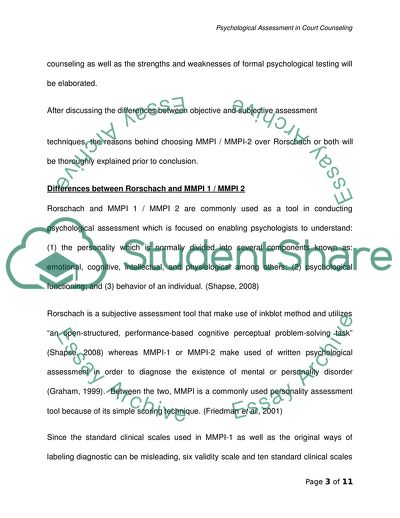Cite this document
(Psychological Assessment in Court Counseling Literature review Example | Topics and Well Written Essays - 1250 words, n.d.)
Psychological Assessment in Court Counseling Literature review Example | Topics and Well Written Essays - 1250 words. https://studentshare.org/psychology/1714796-psychological-assessment-in-counseling
Psychological Assessment in Court Counseling Literature review Example | Topics and Well Written Essays - 1250 words. https://studentshare.org/psychology/1714796-psychological-assessment-in-counseling
(Psychological Assessment in Court Counseling Literature Review Example | Topics and Well Written Essays - 1250 Words)
Psychological Assessment in Court Counseling Literature Review Example | Topics and Well Written Essays - 1250 Words. https://studentshare.org/psychology/1714796-psychological-assessment-in-counseling.
Psychological Assessment in Court Counseling Literature Review Example | Topics and Well Written Essays - 1250 Words. https://studentshare.org/psychology/1714796-psychological-assessment-in-counseling.
“Psychological Assessment in Court Counseling Literature Review Example | Topics and Well Written Essays - 1250 Words”. https://studentshare.org/psychology/1714796-psychological-assessment-in-counseling.


